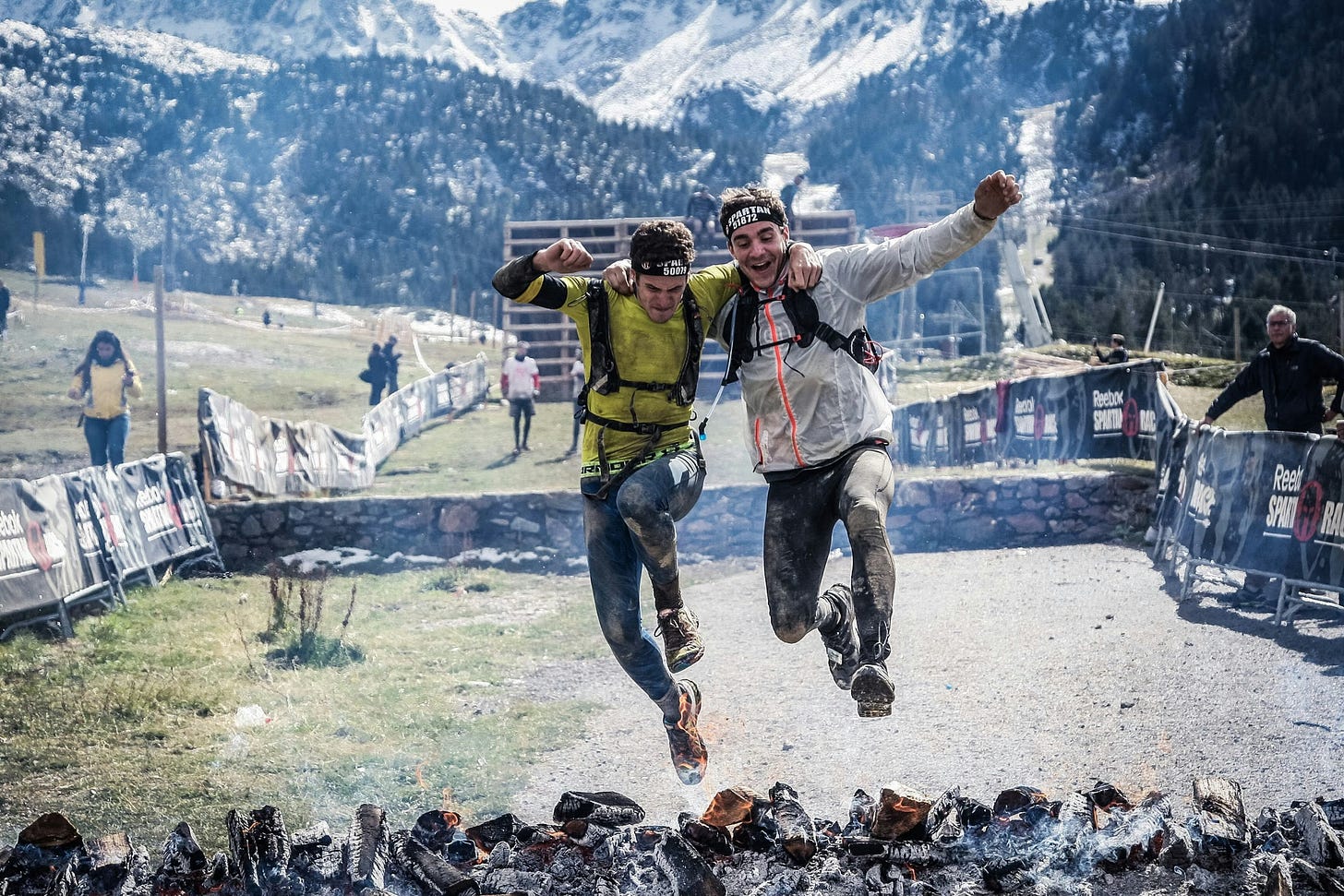Why Pushing Too Hard Can Ruin Your Chances (and the Smarter Way Forward)

Ever wrangled with a problem so hard, you made it worse?
We've all been there before. Tossing and turning, desperate to fall asleep. Over-preparing for a job interview, then blanking on easy questions. Or practicing your big speech until the words feel robotic.
This isn't bad luck.
It's the paradox of effort.
Sometimes, the harder you try, the less likely you are to succeed. And it's not just frustrating. It can quietly sabotage your biggest goals.
What The Hell Is The Effort Paradox?
When you apply too much conscious force toward certain goals, you disrupt the very process that would help you succeed.
This paradox shows up in a few ways. First is the Law of Reversed Effort. It states the more you force something, the more it resists you. Think: trying to relax, forcing creativity, willing yourself to "just be confident."
Second is the Ironic Process Theory, which occurs when you tell yourself, "don't mess this up," and you've already planted the seed to mess it up. The mind rebels against over-control.
Third is Self-Handicapping, where sometimes we unconsciously sabotage ourselves--procrastinating, overcomplicating, or distracting--so we have an excuse if we fail. This is effort's evil twin.
Why It Happens
Whenever we overexert ourselves, we activate pressure mode instead of flow mode.
Pressure mode triggers things like anxiety, tightening of muscles, narrowed focused, and can make mistakes more likely. Flow mode, on the other hand (the effortless focus where we do our best work), leads to relaxed concentration and a touch of detachment.
The paradox is that more effort feels like the solution, but it can be the very thing that kills performance.
How To Work With The Paradox, Not Against It
It took me years to wrestle with the paradox of effort, but here are the five things I did to work with the paradox instead of against it.
First, stop obsessing over the end goal. Instead, focus on the act itself. So, for a writer, think about the next sentence, not the whole book. Athletes, focus on form, not winning. For sleep, focus on breathing, not "falling asleep."
Second, you want to use strategic distraction. If you're stuck, step away. Let your mind solve the problem in the background. Breakthroughs love showers, walks, and idle moments.
Third, practice mindful acceptance. When an anxious thought pops up, don't wrestle it. Acknowledge it, let it be, and return to what you're doing. Resistance fuels problems.
Fourth, train "resilient effort." Effort should feel like energy, not strain. Break your work into short, focused bursts, and build tolerance gradually. This teaches your brain that effort isn't the enemy.
Finally, normalize small failures. Instead of fearing mistakes, make them part of your process. The less you fear failure, the less pressure you put on every move.
Bottom Line: The Job Interview
Imagine yourself rehearsing every answer, over-polishing your stories, and memorizing your "perfect" intro.
You then walk into the room. You're stiff, robotic, and disconnected. You bomb it.
Contrasted with the idea of walking in with a clear mind, a few core points, and a willingness to adapt.
Doesn't the second way already feel lighter?
Effort matters, but so does how you apply it. Push too hard, and you choke. Loosen your grip, and you might just find your natural skills take over.
So next time you're spinning your wheels, remember:
Don't stop trying. Stop forcing.
This week, pick one area where you're pushing too hard and try easing up by just 10%. See what happens. You might find that less grind equals more gain.


Sometimes when I’m working on writing a song I feel stuck trying to force a chorus or lyric. Taking a walk or stepping away to let the idea marinate is a great idea. A lot of times that’s when I get the most inspiration. I love how you show that small breaks can lead to bigger creative breakthroughs. It also makes playing a song feel more alive and less forced. I’m gonna work on not over-practicing when I’m playing guitar and just let my mind do its work in the background. I’m excited to see how it turns out! Thank you Idris Elijah!
This really reinforces something I’ve been learning for some time : pressure and too much control can sabotage your progress. I like the idea of practicing mindful acceptance and normalizing small failures. It makes life feel lighter and more sustainable. It’s reassuring to know that flow comes from the right kind of focus, not from grinding endlessly. “Don’t stop trying. Stop forcing.” would make a great t-shirt! I’ll definitely remember those words from another insightful newsletter. Thanks for the great read Idris!